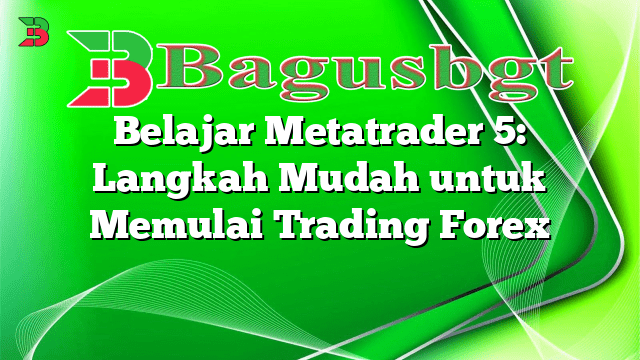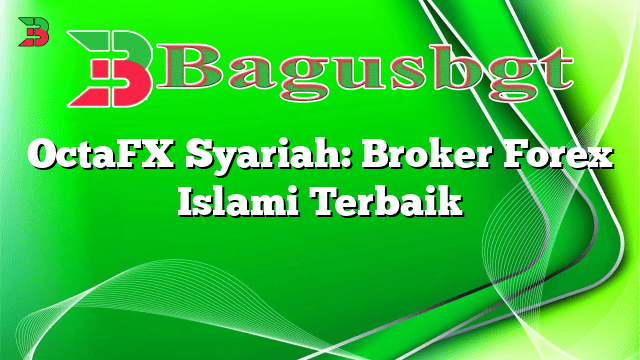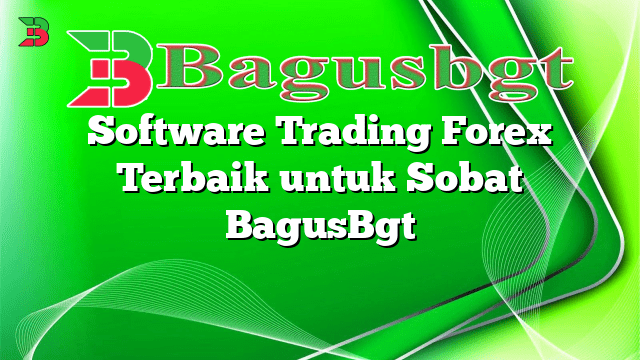Salam, dear readers! In this article, we will delve into the world of options trading and forex trading, and explore the differences between these two popular investment options. Both options and forex trading offer unique opportunities for investors to profit from market movements, but they also come with their own set of advantages and disadvantages. So let’s dive in and discover which one may be the right choice for you!
1. What are Options?
Options are financial derivatives that give traders the right, but not the obligation, to buy or sell an underlying asset at a predetermined price within a specific time period. This flexibility allows traders to profit from both rising and falling markets, making options an attractive choice for those seeking versatility in their trading strategies.
2. What is Forex Trading?
Forex trading, also known as foreign exchange trading, involves buying and selling currencies on the global market. As the largest and most liquid financial market in the world, forex offers traders the opportunity to profit from fluctuations in exchange rates between different currencies.
3. The Advantages of Options Trading
Options trading has several advantages that make it appealing to investors:
– Versatility: Options allow traders to profit from both rising and falling markets, providing more opportunities for potential gains.- Limited Risk: With options, traders have a predefined maximum loss, which can be especially beneficial for risk-averse individuals.- Leverage: Options allow traders to control a large amount of underlying assets with a relatively small investment, amplifying potential profits.
4. The Advantages of Forex Trading
Forex trading also offers numerous advantages:
– High Liquidity: The forex market is the most liquid financial market in the world, ensuring that traders can enter and exit positions quickly and easily.- 24/5 Market: Unlike other financial markets, the forex market operates 24 hours a day, five days a week, providing traders with ample trading opportunities.- Global Market: Forex trading allows investors to trade currencies from around the world, making it a truly global market with diverse opportunities.
5. The Disadvantages of Options Trading
While options trading has its advantages, it also comes with a few drawbacks:
– Complexity: Options trading can be complex, especially for beginners, as it involves understanding various options strategies and factors that affect option prices.- Expiration Date: Options contracts have an expiration date, which means traders must be mindful of time decay and choose the right timeframe for their trading strategy.- Higher Costs: Compared to forex trading, options trading typically involves higher transaction costs, including commissions and fees.
6. The Disadvantages of Forex Trading
Forex trading also has its share of disadvantages:
– High Volatility: The forex market can be highly volatile, which can lead to rapid and substantial losses if proper risk management strategies are not in place.- Complex Fundamentals: Understanding the various factors that influence currency exchange rates requires a deep understanding of global economics and geopolitical events.- No Guaranteed Returns: Like any investment, forex trading carries risks, and there is no guarantee of profits. Successful forex trading requires skill, knowledge, and experience.
7. Alternatives to Options and Forex Trading
If options and forex trading don’t align with your investment goals or risk tolerance, there are alternative investment options to consider:
– Stock Trading: Buying and selling shares of individual companies on the stock market can be a lucrative investment option.- Real Estate: Investing in real estate properties can provide long-term appreciation and rental income.- Commodities Trading: Trading commodities such as gold, oil, or agricultural products can diversify your investment portfolio.
8. Options vs Forex Trading: A Comparison Table
Options Trading |
Forex Trading |
|
|---|---|---|
Flexibility |
Allows trading of various assets |
Focused on currency pairs |
Risk |
Defined maximum loss |
High volatility can lead to substantial losses |
Liquidity |
Varies depending on the underlying asset |
The most liquid financial market globally |
Market Hours |
Depends on the exchange |
24 hours a day, 5 days a week |
Complexity |
Requires understanding of options strategies |
Requires understanding of global economics |
9. Frequently Asked Questions (FAQ)
Q: Can I trade options and forex simultaneously?
A: Yes, many traders engage in both options and forex trading simultaneously to diversify their portfolios and take advantage of different market conditions.
Q: Is options trading riskier than forex trading?
A: Both options and forex trading carry risks. The level of risk depends on various factors, including the trader’s knowledge, experience, and risk management strategies.
Q: Which is better for beginners, options, or forex trading?
A: For beginners, forex trading may be more accessible due to its simplicity and the abundance of educational resources available. However, with proper education and guidance, options trading can also be suitable for beginners.
Conclusion
In conclusion, options and forex trading offer unique opportunities for investors seeking to profit from market movements. Options trading provides versatility and limited risk, while forex trading offers high liquidity and a global market. Both have their advantages and disadvantages, and the choice depends on individual preferences, investment goals, and risk tolerance. It’s essential to thoroughly educate oneself, develop a trading strategy, and practice risk management to succeed in either options or forex trading. Remember, no investment is without risks, so always invest what you can afford to lose.
 Bagus Banget Kumpulan Informasi terbaru dari berbagai sumber yang terpercaya
Bagus Banget Kumpulan Informasi terbaru dari berbagai sumber yang terpercaya


